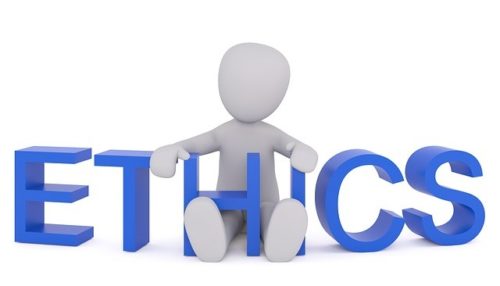-
Civility and Professionalism: The Art of Graceful Disagreement The effectiveness of our adversarial legal system is greatly enhanced through the combination of talent and temperament. The mark of a fine lawyer is the ability to gain both reverence and respect through effective advocacy combined with civility and fair play. This combination decreases animosity from the conference room to the courtroom, promotes good faith negotiation, and will ultimately both benefit clients and improve the public perception of the profession. This course will provide a thorough examination of a lawyer’s ethical and professional duties both in and out of the courtroom as they relate to civility and professionalism. It will discuss the interaction between advocacy and civility using practical examples frequently faced by practitioners of every type, and provide recent case law and ethical rules discussing some common issues. It will cover applicable rules of both ethics and professionalism, as well as the duty of respect to the court and the court’s power of contempt.
-
Off the Clock: Professional Ethics On Personal Time Most legal ethics programs focus on how applicable rules, laws, and related opinions govern a lawyer´s behavior when he or she is practicing law. But what rules apply to a lawyer´s behavior off the clock? The answer is: ethically, a lawyer is never off the clock. This program will focus on the rules, statutes, case law, principles, and guidelines that govern a lawyer’s actions, conduct, and speech, during personal time. It will break down and analyze Professional Rule of Conduct 8.4, Misconduct, breaking down each subsection into informative, practical examples, and present practical illustrations and informative case examples from around the country of how off the clock behavior can have on the job consequences.
-
Psychosocial Evaluations and Consultation in Civil Litigation: Strategies to Understand and Humanize the ClientMany civil litigation attorneys (plaintiff and defense), particularly in the fields of personal injury and medical malpractice, struggle to understand the harm or injury their clients have suffered. In this course, forensic expert Mark Silver provides for the lawyer the psychosocial evaluation as a useful and humanistic tool to better conceptualize and understand the harms that the client has suffered, such that the lawyer can advocate for the client in a more informed and holistic manner with a consideration for a broad range of harms that may require compensation.Learning Objectives:I. Understand a new tool to add to a personal injury (or medical malpractice) practice to evaluate the harms clients have suffered for evaluation purposesII. Identify the possible psychological effects of harm from an injury in a much broader mannerIII. Recognize how to advocate for your client by understanding a broader range of harms
-
Connecticut 12 Credit Nutmeg Bundle with 2 Ethics Bundle Courses Include: Fair Debt Collection Practices Act (1 Credit) Opening Statement As a Story -101 (1 Credit) Opening Statements As a Story - 102 (1.5 Credits) Closing Arguments (2 Credits) Anatomy of a Civil Tax Controversy (1.5 Credits) Paying for Referrals: A Danger to the Payor and Recipient's Freedom (1 Credit) Unauthorized Practice of Law: Ethical Dilemmas and the Rule of Law (1 Ethics Credit) Physician Employment Agreements: Problem Areas that can be Landmines (1 Credit) Elimination of Bias in the Legal Profession: Both Personally and Professionally (1 Ethics Credit) The Fifth Amendment’s Essential Role in Offshore Audits (1.5 Credits)
-
The Federal False Claims Act: Enforcement and Recent Updates The session will provide an overview of the Federal Civil False Claims Act (FCA) and how it works. It will also provide an assessment of enforcement activities, showing how healthcare providers may be at risk. In addition, the session will review recent cases and show how they potentially impact healthcare providers. We will start with a review of the Federal False Claims Act and discuss how it works and how it is being used to fight health care fraud. We will discuss how the various health care fraud task forces use the Federal False Claims Act and its whistleblower provisions to identify and prosecute health care fraud. The webinar will take the Federal False Claims Act apart and show step by step how an action is filed, how the government responds and how the courts interpret various elements of the Act. We will discuss proof, damages under the Act and how the whistleblower is rewarded for bringing a successful case. The session will also provide an overview of the Anti-Kickback Statute (AKS) and review what it prohibits, as well as a general review the AKS available safe harbors. It will also show how violation of the AKS can raise FCA concerns, and it will provide an assessment of enforcement activities, showing how participants may be at risk. In addition, the session will review recent cases and show how they potentially impact participants. We will provide an in-depth review of the AKS, focusing on what is prohibited under the Act and what the exceptions are. We will also review the case law, particularly the early case law that sets the stage and basis for how the courts interpret the law. We will also review the changes made to both the False Claims Act and the Anti-Kickback Statute made by the Affordable Care Act. Finally, the webinar will review various cases to show how easy it is to run afoul of the Statute, and how the courts view compliance with it. In addition, we will discuss the latest updates to both the False Claims Act and the Anti-Kickback Statute.
-
Arizona Grand Canyon 15 Credit Bundle with Ethics Bundle Courses Include: Overview of the Freedom of Information Act (2 Credits) Fair Debt Collection Practices Act (1 Credit) Opening Statement As a Story (101) - (1 Credit) Opening Statements As a Story - 102 (1.5 Credits) Closing Arguments (1.75 Credits) Anatomy of a Civil Tax Controversy (1.5 Credits) NCAA & Name, Image, Likeness – Updates & Anarchy in America! (1.25 Credits) Paying for Referrals: A Danger to the Payor and Recipient's Freedom (1.25 Credits) The Anti-Kickback Statute (1 Credit) Effective and Ethical Use of Experts (1 Ethics Credit) The Impact Of Internet and Sports Betting for Lawyers (1 Ethics Credit) Unauthorized Practice of Law: Ethical Dilemmas and the Rule of Law (1 Ethics Credit) All Esquire CLE Arizona Bundle courses confirm with the State Bar of Arizona CLE requirements: http://www.azbar.org/cleandmcle/mcle/frequentlyaskedquestionsaboutmcleinarizona/
-
Talc Litigation: Cross-examination of a Lung Cancer Plaintiff
-
A Lawyer’s Guide to Ethics and Ethical Networking in a Virtual World As an attorney, you are in the business of relationships. Whether you are in a big law firm that has to participate in “Beauty Contests” (RFPs) or a solo practitioner, whether you are a new attorney, a mid-level associate or managing partner, people do business with People “they know, like and trust.” The relationships you create will allow you to build the practice you want and networking is still the best way to create those relationships. You will specifically learn: How to define networking in new way Why networking is the best way to become a Rainmaker What skills you can learn networking that will benefit every area of your practice Where to network for the best results How to work a room Fun tips and tricks to use to break the ice How to network if you are an introvert An overview of how use social media for networking purposes The Rules of Professional Conduct you need to know to keep your networking ethical as well as interesting
-
Staying Safe and Sound - Maintaining A Work/Life Balance in Uncertain Times We know that you are most likely being bombarded with messages about the Coronavirus, whether that be on television, social media, or in your community networks. At uncertain times like this, anxiety, stress, fear and negative thoughts can easily take control. You may be worried about being in crowds, your loved ones, your seniors, your office, your clients, your finances or how to manage whatever the future holds as we prepare to return to the “new normal” in our personal and professional lives. The question facing everyone in the legal profession is compelling and far-reaching: “Will I ever be able to maintain a work/life balance “? Recent studies have shown that there has been a dramatic increase in impairment due to alcoholism, addiction and mental health disorders among members of the legal profession. The statistics are compelling and clearly indicate that 1 out of 3 attorneys will likely have a need for substance use or mental health services at some point in their careers. Accordingly, unexpected events like those we are facing as a society will have an even greater impact on lawyers and those who work with them. Agenda:
- The prevalence rates of impairment in the legal profession due to substance use and mental health issues prior to COVID-19.
- Causes and symptoms of depression, stress and anxiety
- The impact of COVID-19 crisis on mental health issues and the role isolation plays
- Fear associated with the uncertainty surrounding the future of the legal industry
- Well- being strategies to reduce or alleviate these conditions
- Tips for maintaining a healthy and productive work/life balance
- Ethical dilemmas created by the Coronavirus crisis, including remote supervision of attorneys and staff, record and timekeeping, data security and confidentiality in the remote office setting.
- Why legal professionals are at higher risk to develop mental health and substance use disorders
- Challenges and barriers facing legal professionals from seeking help
- The free, confidential services provided by Lawyers Assistance Programs to lawyers, their family members, judges and law students
- The role that education plays in breaking the stigma and fear associated with addiction and mental illness in the legal profession
- Resources available to both lawyers and support staff with emphasis on COVID-19 issues
-
Gambling Addiction for Lawyers Recent studies have shown that there has been a dramatic increase in impairment due to alcoholism, drug addiction and mental health disorders among members of the legal profession. The statistics are compelling and clearly indicate that 1 out of 3 attorneys will likely have a need for substance use or mental health services at some point in their careers. What about that “other” addiction – Gambling ? In 2018, the United States Supreme Court, in Murphy vs. NCAA, held that sports gambling was legal in all of the United States. By 2020, 22 states had added on-line gambling accessible by cell phone, computer and tablets. With it came the compulsive gambler. This program will explore not only Gambling Disorder, but also the connection between gambling and the more well -known forms of impairment and why lawyers are at higher risk to develop problems. This problem has only been exacerbated by the stress, anxiety and isolation caused by the Coronavirus crisis. The results are startling. Agenda:
- The early warning signs of impairment and how they relate to gambling disorders. Special attention will be given to the connection between the Coronavirus and it’s impact on social isolation, stress, anxiety, depression and gambling disorders.
- The free services that Lawyers Assistance Programs provide to lawyers, judges, their family members and law students.
- A close look at what barriers exist that prevent lawyers and judges from seeking the help they need will be provided.
- The role that education plays in breaking the stigma and fear associated with addiction and mental illness in the legal profession.
-
The Burned Out Lawyer- Recognition and Prevention Strategies If there is one word we heard during our journey through the pandemic and continue to hear more than any other term as we navigate into the Post-COVID “new normal” world, it is “burnout.” But what is burnout? What does it look like and feel like? More importantly, what can we do to prevent the normal stress and “lawyer anxiety” so common in our profession from developing into the physically and emotionally draining state known as Burnout? Recent studies have shown that there has been a dramatic increase in impairment due to alcoholism, addiction and mental health disorders among members of the legal profession. The statistics are compelling and clearly indicate that 1 out of 3 attorneys will likely have a need for substance use or mental health services at some point in their careers. Agenda
- The early warning signs of impairment, with special emphasis on stress and burnout.
- Symptoms of stress and burnout that are particularly prevalent among members of the legal profession;
- Discussion will include the basic stress reactions, both physical and psychological; the difference between healthy stress and distress, with emphasis on the impact of the COVID-19 pandemic.
- The transition from distress to burnout and how we can recognize and identify the sources of stress in our lives before burnout develops.
- Guidelines for a “master plan”, including realistic prevention strategies that work.
- Why lawyers and judges are at especially high risk to develop mental health and substance use disorders.
- The free services that Lawyers Assistance Programs provide to lawyers, judges, their family members and law students.
- The barriers that prevent lawyers and judges from seeking the help they need.
- The role that education plays in breaking the stigma and fear associated with alcoholism, substance use disorders and mental illness in the legal profession.
-
Domestic violence as intimate terrorism: mitigation for criminal defense lawyers
Abuse of domestic partners in the form of physical, psychological, financial, sexual, and related forms of abuse tends to be systemic in nature causing complex trauma to the victim who suffers overwhelming psychological and emotional stress leading to various psychiatric issues forcing the victim to contend in unhealthy ways while experiencing deep feelings of helplessness, hopeless despair, and pain. This program will provide a detailed understanding of the victim’s experiences and challenges for the criminal defense lawyer in such cases.
Agenda
- To understand the types of abuses that victims suffer.
- To understand the concept of complex trauma and how it can be applied to victims of domestic abuse to understand their trauma for defense purposes.
- To understand the major psychiatric diagnoses associated with victims of domestic violence.



